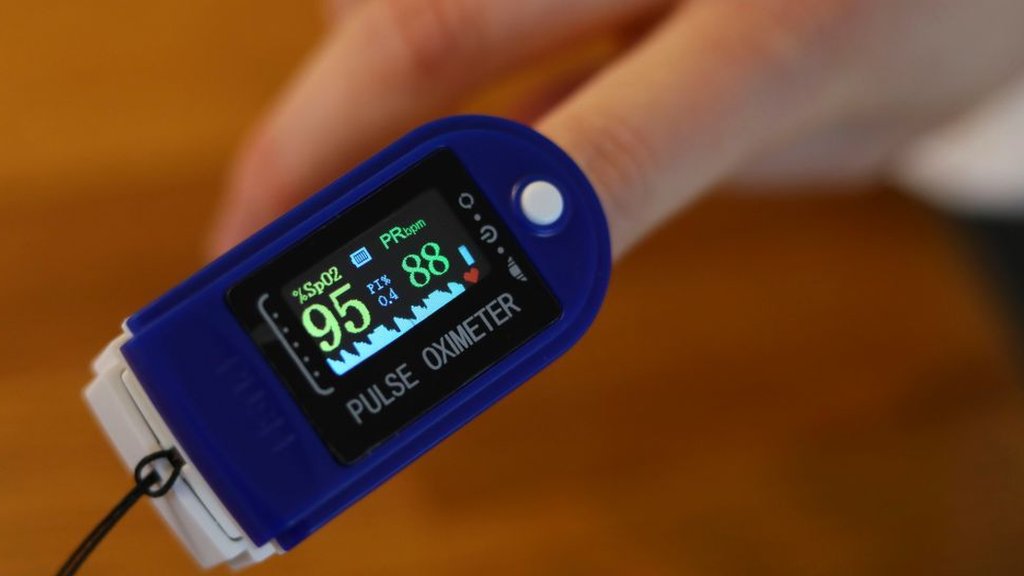The minimum amount of oxygen level in human body should typically range between 95% to 100%. If your oxygen level drops below this given level, you might get exposed to a wide range of risk factors in no time. In order to monitor your oxygen level, all you need to do is use a pulse oximeter, and that’s it. However, there are certain factors that might prevent you from getting access to accurate results; check them out now:
- Bright lights
- Dirty fingers
- Nail polish
- Darker skin tones
- Poor circulation to the extremities
For more information, take a quick look at this article right away. Stay tuned till the very end, and you will be able to uncover potential insights in no time. Let’s dig deeper now!
What Are Some of the Symptoms of Low Oxygen Levels?
Go through the plethora of symptoms that are related to low blood oxygen levels:
- Headaches
- Shortness of breath
- Dizziness
- Restlessness
- Chest pain
- Rapid breathing
- High blood pressure
- Confusion
- Lack of coordination
- Sense of euphoria
- Visual disorders
- Rapid heartbeat
If you suffer from any of these symptoms, make sure to get in touch with a reliable and credible healthcare provider. These professionals will treat your health conditions without leaving any room for mistakes.
What Do You Mean by Normal, Above Normal and Below Normal Oxygen Level?
Let’s get some brief details about normal, above-normal and below-normal levels of oxygen:
- Normal Oxygen Level
Your normal ABG oxygen level should be between 80 and 100 mm Hg (millimeters of mercury). If you choose to measure your Sp02 level with the help of an oximeter, it will show you reading between 95 and 100%.
- Above Normal Oxygen Level
If you tend to breathe naturally, your oxygen level will never become extremely high. People using supplementary oxygen often get exposed to these kinds of circumstances.
- Below Normal Oxygen Level
If your oxygen level is below normal, chances are high that you are suffering from Hypoxemia. It can pose serious threats to your organs and body tissue.
What Are the Causes of Low Oxygen Levels?
Hypoxemia or low blood oxygen level can take place due to various reasons. Take a quick look at some of the pointers listed below in this article:
- Lung’s inability to inhale and send oxygen to several tissues and cells
- Presence of insufficient oxygen in the air
- Bloodstream’s inability to collect oxygen, circulate it to the lungs and transport it in different body parts.
Now, you might wonder what the broad range of conditions that pave the way toward Hypoxemia is. Well, the following subhead is all about that.
What Are the Various Conditions that Cause Hypoxemia?
Go through the factors without any further ado:
- Heart diseases such as congenital heart disease
- Asthma
- COVID-19
- High altitude
- COPD or Chronic Obstructive Pulmonary Disease
- Anemia
- Emphysema
- Interstitial Lung Disease
- Pneumonia
- ARDS or Acute Respiratory Distress Syndrome
- Pulmonary fibrosis; damage or scarring of an individual’s lungs
- Obstruction of an artery in your lung
- Presence of excessive fluids in your lungs
- The presence of gas or air in your chest typically results in lungs collapse
- Some kinds of medications, such as pain relievers and narcotics
- Sleep apnea; is nothing but breathing interruptions while grabbing a sound sleep
Keeping these conditions untreated might expose you to several health problems. If you don’t want to suffer from low oxygen levels in human body, opting for the perfect treatment will indeed be the best bet!
Under What Circumstances Should You Get in Touch with a Healthcare Provider?
You must contact your professional healthcare provider if you:
- Deal with sudden or severe shortness of breath
- Suffer from serious breathing issues while doing some types of physical activities or exercises
- Experience shortness of breath while taking some rest after a hectic and tiresome day
- Wake up all of a sudden with a feeling of choking or shortness of breath
- Suffer from shortness of breath along with rapid heartbeat, cough and fluid retention
Always make sure to save these emergency contact details on your phone. Since these kinds of situations are quite unpredictable, you must stay well-prepared all the time.
What Are the Lifestyle Adjustments to Deal with the Symptoms?
If you manage to incorporate these symptoms into your regular routine, you will be able to combat the challenges with utmost ease:
- Take a step back from secondhand smoking
- Exercise daily without skipping a day
- Grab a nutritious diet containing enough whole grains, fruits, vegetables, lean protein etc.
By taking these baby steps, you will be able to pave the way toward a healthy and happy lifestyle. You might consult a professional nutritionist and ask them to provide you with a well-planned and balanced diet.
The Bottom Line
Hopefully, you are now quite aware of your oxygen level in human body. Accurate knowledge will allow you to get rid of additional and unwanted health issues. You can contact Apollo Hospital and they will make sure to do the needful.



